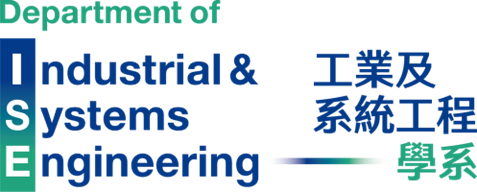Achieving Low-Cost Industrial Digitalisation for SMEs
Distinguished Research Seminar Series

-
Date
20 Jun 2024
-
Organiser
Department of Industrial and Systems Engineering, PolyU
-
Time
15:30 - 17:00
-
Venue
BC404
Speaker
Prof. Duncan McFarlane
Summary
The main driver for industrial digital systems developments over the last 30 years has been improved functionality rather than cost. Given the large number of outstanding challenges this has been a logical direction to take and in the last 10 years Industry 4.0 has provided a framework for bringing many of these developments to fruition. But a limited focus on cost has meant that many industrial companies - especially small ones - do not have sufficient budget to add digital solutions to their operations. The field of low-cost industrial digitalisation which has emerged over the last ten years in which cost is given a higher priority than functionality. This talk will discuss the meaning, scope and applicability of low-cost digital solutions and argues that a systematic approach to their specification, design and deployment can be effective in increasing the confidence of industrial organisations in applying them. The so called Digital Shoestring approach developed at Cambridge will be introduced as an example and case studies from manufacturing and logistics will provide examples of the way in which such an approach can applied.
Keynote Speaker

Prof. Duncan McFarlane
Professor
Institute for Manufacturing, Department of Engineering,
Cambridge University, UK
Duncan McFarlane is Professor of Industrial Information Engineering at the Cambridge University Engineering Department, fellow of St John's College and head of the Distributed Information & Automation Laboratory within the Institute for Manufacturing. His work involves the development of manufacturing automation and control systems and more broadly the use of digital systems across the industrial supply chain. His current research work is mainly focused on distributed, intelligent industrial automation, low-cost approaches to digital industrial solutions, resilient and reconfigurable systems in manufacturing and logistics. Previous work has also examined issues relating to RFID integration, track and trace systems, valuing industrial information, and information solutions supporting industrial services.
You may also like














